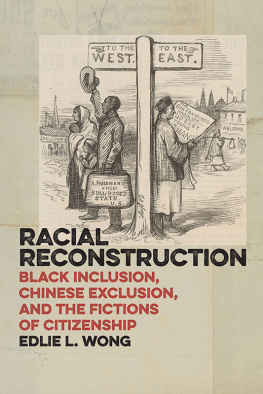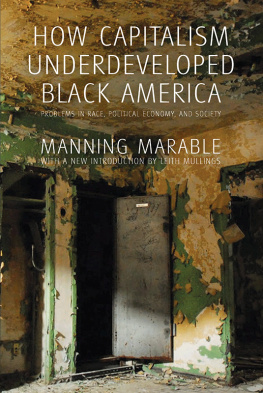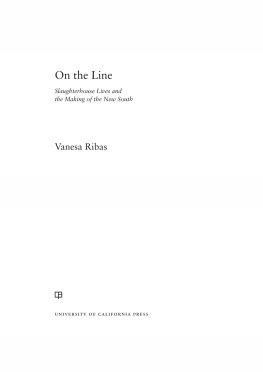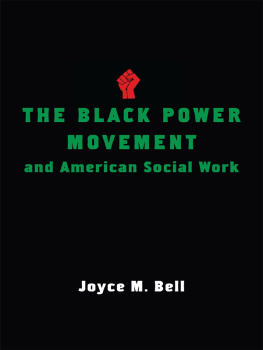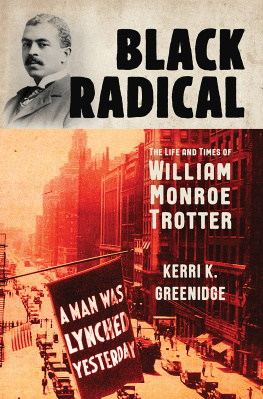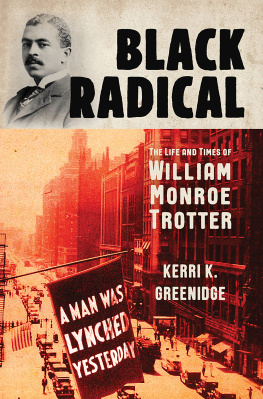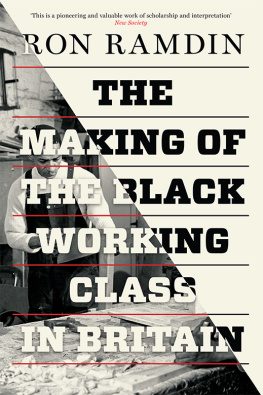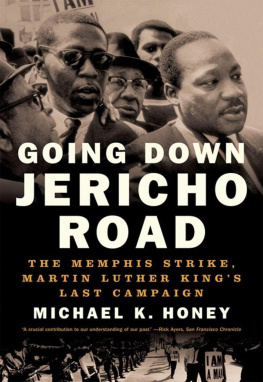The publisher and the University of California Press Foundation gratefully acknowledge the generous support of the George Gund Foundation Imprint in African American Studies.
University of California Press, one of the most distinguished university presses in the United States, enriches lives around the world by advancing scholarship in the humanities, social sciences, and natural sciences. Its activities are supported by the UC Press Foundation and by philanthropic contributions from individuals and institutions. For more information, visit www.ucpress.edu.
University of California Press
Oakland, California
2019 by The Regents of the University of California
Library of Congress Cataloging-in-Publication Data
Names: Trotter, Joe William, 1945- author.
Title: Workers on arrival : black labor in the making of America / Joe William Trotter, Jr.
Description: Oakland, California : University of California Press, [2019] | Includes bibliographical references and index. |
Identifiers: LCCN 2018028905 (print) | LCCN 2018031716 (ebook) | ISBN 9780520971172 (Epub) | ISBN 9780520299450 (cloth : alk. paper)
Subjects: LCSH: Working class African AmericansHistory. | African AmericansEmploymentHistory.
Classification: LCC HD 8081.A65 (ebook) | LCC HD 8081. A 65 T 77 2019 (print) | DDC 331.6/396073dc23
LC record available at https://lccn.loc.gov/2018028905
Manufactured in the United States of America
28 27 26 25 24 23 22 21 20 19
10 9 8 7 6 5 4 3 2 1
I dedicate this book with love to my three brothers among the Trotter-14Rahmaan Rasheed (James Edward), Otis, and David Wayne
ACKNOWLEDGMENTS
A long time in the making, this book has benefitted from the research, feedback, and encouragement of many institutions, colleagues, students, friends, and family members. As a work of synthesis, Workers on Arrival builds upon the pioneering contributions of numerous scholars. Thus, I am happy to extend my sincere gratitude to all who helped to make this book possible. Along the way, however, I have incurred special debts and wish to extend special gratitude to my longtime friend Earl Lewis, University of Michigan and past president of the A.W. Mellon Foundation; Leslie Harris, Northwestern University; Dennis Dickerson, Vanderbilt; Ron Lewis, University of West Virginia; Clarence Lang, Kansas University; Rhonda Williams, Case Western Reserve University, now at Vanderbilt; Donna Murch, State University of New Jersey, Rutgers; and Lisa Matterson, University of CaliforniaDavis.
In 2015, Carnegie Mellon Universitys Center for Africanamerican Urban Studies and the Economy (CAUSE) celebrated its twentieth anniversary with a state-of-the-field conference on black urban history since the transatlantic slave trade. Papers and comments presented at this conference reinforced work on all phases of this synthesis. Participants included, to name a few, Davarian Baldwin, Trinity College; Marcus Hunter, UCLA; Carol Anderson, Emory University; Leslie Alexander, Ohio State University, now at the University of Oregon; Michael Gomez, New York University; Richard Blackett, Vanderbilt; Samuel Black, the Heinz History Center, Pittsburgh; Laura Grantmyre, Point Park University; and Larry Glasco and Rob Ruck, both at the University of Pittsburgh.
Each year, a CAUSE postdoctoral fellow visits Carnegie Mellon to conduct uninterrupted research and writing on his or her own book. As I worked on this project, I enjoyed helpful interactions and conversations with postdoctoral fellows Kwame Holmes, University of Colorado; Millington Bergeson-Lockwood, U.S. Embassy, Malawi; Scot Brown, UCLA; Stephanie Boddie, Baylor University; and Waverly Duck, University of Pittsburgh. At the same time, indispensable to progress on this book were opportunities to share my ideas with others in a variety of public and academic settings at home and abroad: the Urban History Association; the Association for the Study of African American Life and History; the American Historical Association; the National Museum of African American History and Culture in Washington, DC; and programs in African American and U.S. history at Newcastle University and Queens College in the United Kingdom. Special thanks to historians Marcus Rediker, University of Pittsburgh and director of the Annual E.P. Thompson Lecture; Benjamin Houston, Newcastle University, UK; Brian Kelly, Queens College, Belfast, UK; and Emma Hart, University of St. Andrews, UK.
For their ongoing support, I am indebted to CAUSE advisory board members Eric Anderson, School of Design; Edda Fields-Black, Department of History; James P. McDonald, BNY-Mellon Global Philanthropy (retired); Kenya Boswell, BNY-Mellon Foundation of Southwestern Pennsylvania (president); Afeworki Paulos, Social and Decision Sciences and Librarian (retired); Nico Slate, Department of History; Gabrielle Michalek, librarian; and H. LaRue Trotter, teacher. In the larger Pittsburgh metropolitan community, I acknowledge, in addition to BNY-Mellon, the Giant Eagle Corporation, Nancy and the late Milton Washington, and the Falk family fund (before it disbanded) for supporting the research mission of CAUSE and scholarship under the Giant Eagle Professorship in History and Social Justice. Making this work possible at Carnegie Mellon, however, is the consistent support of current and recent department heads Donna Harsch and Caroline Acker; deans Richard Scheines, John Lehoczky, Ramayya Krishnan, and Ilker Baybars (CMU-Q); provosts Mark Kamlet and Farnam Jahanian; and presidents Jared Cohen, Subra Suresh, and now Farnam Jahanian.
In the Department of History, this book benefitted from ongoing conversations with colleagues Wendy Goldman, my coeditor on a recent collection of essays, The Ghetto in Global History; Nico Slate, a specialist on transnational black history; and Lansin Kaba, Distinguished Visiting Professor of History at the CMU-Qatar campus in the Middle East. I am especially grateful to Lansin and Dean Baybars for arranging lectures on the book in-progress at the Qatar campus. Graduate and undergraduate students also encouraged work on this book through their energetic and critical reactions to ideas presented in classes and seminars on the subject: most notably Clayton Vaughn-Roberson, David Busch, Levi Pettler, Bennett Koerber, Andrew Masich, Avigail Oren, Cassie Miller, Michael (Takashi) Matsumaru, Fidel Campet, Kevin Brown, Russell Pryor, Jessica Klanderud, Germaine Williams, Brad Sommer, and Derek Handley, to name a few. Special thanks to Clayton for bibliographical work for this book.
It has been a joy working with the University of California Press and its entire production team. Editor Neils Hoopers interest proved key as I sought to transform an earlier history of blacks in urban America into a more focused history of black workers from the transatlantic slave trade to recent times. For her thorough read and editing of an earlier draft of the book manuscript, I am grateful to Susan Whitlock, the development editor for the UCP. Thanks also to copyeditor Barbara Armentrout for her diligent work on the final version of the manuscript. Before this book took its current shape as a labor and working-class history, it also benefitted immensely from anonymous readers at Penguin Press and the Oxford University Press.



